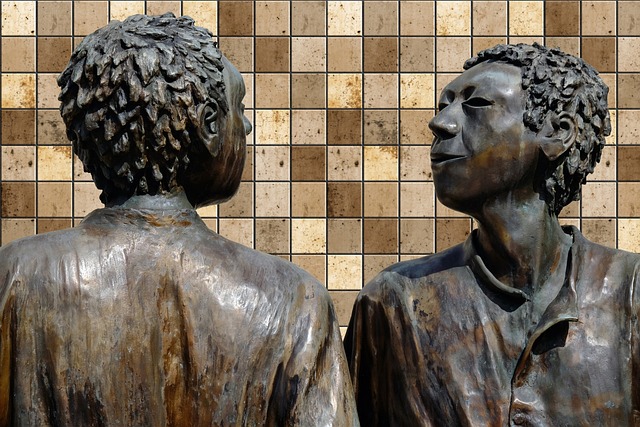
According to logocentrism, thought always breaks into the word.
Logocentrism is the philosophical tendency that takes being as an identity that can be reduced to its linguistic expression . According to the French philosopher Jacques Derrida , the Western tradition places the center of discourse in the logos : that is the basis of logocentrism.
Thought and word
This position maintains that thought , which contains the presence of truth and meaning , always breaks into the word . Therefore, according to Derrida , logocentrism considers certain experiences of the mind to be a natural representation of things . In other words, truth and meaning are produced in mental operations.
Continuing with Derrida 's reasoning and his way of understanding logocentrism, for Western philosophy, language is always subordinated to ideas extrinsic to language itself. On the other hand, logocentrism gives preponderance to the spoken word , to the detriment of writing . This means that the logocentric position places writing as a derivation of the spoken word, which would be an immediate manifestation of language.
In this exaltation of the word, logocentrism believes that it offers direct access to the real. There is an immediate connection between the oral sign and the meaning , something that does not happen with the graphic sign.
Logocentrism, in short, is the opposite of structuralism . While logocentrism maintains that the sign unifies the signifier and the signified, structuralism states that language is the producer of meaning and that there is no signifier capable of absolutely managing the presence of meaning.
Ludwig Klages
It all began with the work of Ludwig Klages , a German philosopher who coined the term logocentrism at the beginning of the 20th century to talk about the tendency to center all speech or text on the logos. Later, Derrida relied on this to complement his study of Western thought, beginning with Plato's legacy and reaching the present day, on that incessant path of philosophy that involves finding the truth .
Although above we mentioned that logocentrism considers that the connection between spoken language and reality is immediate, which is more direct than that between writing and reality, we should not confuse this concept with phonocentrism , which establishes a superiority of the speech and sounds above written language, granting them a hierarchical privilege beyond their functionality.
There are many more authors who discussed logocentrism, even if it is not through this term: Plato, Ferdinand de Saussure and Claude Lévi-Strauss are just some of them. Although all of them maintain that writing is a mere representation of discourse, the origin of knowledge is attributed to logos , a concept that we can understand as "reasoned word , intelligence, reasoning", depending on the context. For Derrida, other pairs in which the superiority of the first element is noted are presence-absence, fullness-emptiness and life-death , for example.

For logocentrism, writing is nothing more than a representation of speech.
Jacques Derrida
Derrida was born in 1930 and died in 2004. His development of deconstruction , an approach that allows us to understand the link between text and meaning, made him especially famous. Postmodern philosophy owes much of its splendor to him. His importance was such that some compared him to Immanuel Kant and Friedrich Nietzsche , going so far as to say that he was his spiritual successor.
In the second half of the 20th century, Derrida's ideas have been among the most controversial in the philosophical field, partly due to his rejection by religious figures and his always critical outlook. His early experiences included repression and racism, two marks that undoubtedly determined his personality and taught him to defend his ideas.
